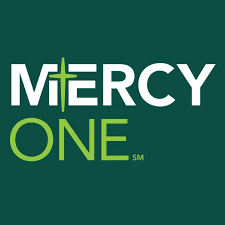Businesses split on PBM bill sent to governor

Gigi Wood May 23, 2025 | 3:04 pm
7 min read time
1,647 wordsAll Latest News, Government Policy and Law, Health and WellnessA bill that aims to help pharmacists with rising costs has been met with opposition from business groups claiming the legislation will raise health care costs for employers and their employees.
The Iowa House and Senate have approved Senate File 383 and sent it to Gov. Kim Reynolds for her signature. If signed, most of its provisions would begin July 1.
Bill sponsor Rep. Brett Barker, who works as a pharmacist, said SF 383 is designed to regulate and cut costs associated with pharmacy benefit managers, or PBMs, which are companies that manage prescription drug benefits for health insurance plans and employers. Many refer to PBMs as the middlemen between prescription drug manufacturers, insurers and pharmacies, and negotiate the price and rebates involved.
Basis of the bill
Barker said PBMs drive up costs for pharmacists, who are not always fully reimbursed for their costs when distributing some medicines. He said 200 small pharmacies across the state have closed during the past decade because of the costs associated with PBMs.
“In state after state, every time there’s an audit or investigation, PBMs are proven to drive up costs on patients and on payers and also underpaid pharmacies,” Barker told the Business Record. “The bill is intended to remove some of those perverse incentives from the system, provide additional transparency, allow patients to choose their health care provider, make sure that dollars actually benefit payers and patients, and make sure the pharmacy gets reimbursed for what it costs to dispense prescription drugs to Iowans.”
Barker said health care insurers are using incorrect calculations in information shared with employers.
“I understand why employers are concerned, because they’re being provided projections from insurance companies, but what we have seen is those projections do not take into account the totality of the bill,” he said. “The state Legislature has not been provided data on our own state plan for our employees that has been requested by committee chairs in order to validate the data. At the end of the day, the states that have done this, it has proven to either be cost neutral or reduce cost to payers and those other states.”
If the bill led to an increase in costs for Iowans, Barker said the Legislature would review the bill’s provisions.
“If there’s evidence of that, then we’ll certainly look at it. But there’s nothing that suggests that that has been the case anywhere. We have analyses from other states. And in fact, the change that a lot of folks have been pointing to the most in our state, in places like West Virginia and Ohio, have been proven to save hundreds of millions of dollars for payers,” he said. “So it’s actually brought down the cost of prescription drugs for payers at the same time as keeping their pharmacies whole, because you provided a transparent reimbursement model where PBMs cannot manipulate drug pricing and siphon dollars out of the system.”
He said there is no proof that any new costs associated with the bill would be passed on to employers or employees.
The Iowa Insurance Division will conduct oversight and will have jurisdiction over the PBMs and lawmakers will be paying attention to any analysis they develop over the coming months and years, he said. SF383 directs the Iowa Insurance Division to submit a report on the wholesale prescription drug market and the role of pharmacy services administrative organizations in the drug supply chain.
Business groups say legislation will raise employers’ costs
On May 12, the Iowa Association of Business and Industry, Iowa Bankers Association, Iowa Business Council and National Federation of Independent Business jointly published a statement saying SF383 will cost Iowans an additional $340 million annually.
“The breadth of this legislation is believed to be the largest health care mandate in Iowa history. The Iowa Association of Business and Industry is describing this bill to our members as a cost increase to the health care plans companies offer their employees,” Nicole Crain, president of ABI, said in an email. “This legislation, if signed into law, will significantly raise health care costs for employers and employees.”
The additional $340 million comes from the following cost drivers, Crain said:
- Allow all pharmacies except Walmart, Walgreens and Costco to collect a $10.68 dispensing fee: $114.3 million per year.
- Allow any pharmacy to handle expensive complex specialty drugs without bulk buying power: $135.8 million per year.
- Allow large pharmaceutical companies to offer copay coupons to mask the cost of expensive drug alternatives: $66.3 million per year
- Allow pharmacies to appeal their reimbursement if their wholesaler charges more than the average price in the market: $23.5 million per year
SF383 requires PBMs to reimburse pharmacists a dispensing fee of $10.68 for preparing and dispensing medications. ABI and other business groups at one point asked lawmakers for an amendment to SF383 that would limit the $10.68 fee to independent pharmacies with less than $250 million in annual revenue. Now they are asking for a veto.
“We are asking the governor to veto the bill and address the needs of small independent pharmacies, which can be solved with limited cost to Iowans,” Crain said.
Crain said the July 1 enactment date is too soon for businesses to adjust to such a major change, as it is the middle of a health care plan year for many.
“Plans typically share costs between employer plan sponsors and employees through premiums and copays,” she said. “Employers may have to bear the total new costs until plan designs can be addressed in the new plan year, or employers may see a larger than usual increase at renewal time. Additionally, provisions in the bill, once enacted, prohibit employers from encouraging their employees to get their prescriptions in a certain manner or provide cheaper alternatives due to the gag clause in the legislation.”
Businesses in favor
Hy-Vee Inc., which operates 260 pharmacies, including 152 in Iowa, supports the bill.
“Senate File 383 passed with strong bipartisan support in the Iowa Senate and House of Representatives,” Tina Potthoff, spokesperson for Hy-Vee, said in an email. “The Iowa Pharmacy Association’s bill will bolster rural health care, bring transparency for employer groups, protect patient choice and ensure access to pharmacies throughout our state. As an employer trying to manage health care costs for our 28,000 employees in Iowa, we support this bill because it ensures Iowans can access the medications and health care services they need.”
Hartig Drug has 23 pharmacies across the state. Last year, the company said it closed one of its Dubuque locations because of lower reimbursement rates from PBMs.
“In 2024 on average, every single brand name drug that we dispensed through Wellmark was a loss, so we dispensed zero branded drugs to commercially insured patients in Iowa,” said Charlie Hartig, CEO of 124-year-old Hartig Drug. “We would have been better off actually, to hand them $10 and ask them to go somewhere else. So those types of reimbursement issues are serious and very critical. If we don’t have the ability to at least cover our costs and stop the bleeding, there aren’t going to be very many pharmacies left in the state.”
Hartig said companies like CVS own the insurance company, the PBM, the specialty pharmacy, the mail pharmacy and doctors’ organizations. CVS owns health insurance company Aetna, a PBM called CVS Caremark, and doctor organizations, including Oak Street Health and Signify Health.
“They like to keep everything within their ecosystem, regardless of patients’ right to choose or ability to choose,” Hartig said. “The bill will also provide Iowans an option of the playing field of their choice.”
PBMs started during the 1960s when insurance companies began offering prescription drug coverage.
“What PBMs were intended to do initially was to be an intermediary between an insurance company and a pharmacy, and it would allow us to transmit a file to the insurance company, and then they would review that file and they would remit payment back,” Hartig said. “It’s just an easier way to do it. Prior to that, it was carbon copy and paper forms. As you can imagine, there’d be stacks and stacks of paper for a pharmacy to submit every day, and you could fax it in. Your fax machine would basically hum until it burned up, so that wasn’t a very efficient process.”
The PBM system evolved during the 1980s and 1990s to make the accounts receivable and accounts payable systems more efficient at pharmacies and insurance companies.
“Over the years, there’s been, right or wrong, they’ve wedged themselves in to create and extract more value from the pharmacy system,” Hartig said. “What started as a simple transaction facilitator is now – they run the rebates, they direct where the prescriptions can be filled, they direct whether a patient may or may not take a specific prescription, they work on back-end discounts from pharma manufacturers.”
Regulation of the PBM system has not kept up with the system’s growth, he said.
“Because they’ve grown so quickly over the last two, three decades, the regulations have lagged substantially behind them in terms of how to control PBMs, or at least ensure that PBMs are acting in good faith and in a transparent manner,” Hartig said.
Kate Gainer, executive vice president and CEO of the Iowa Pharmacy Association, which is in favor of the bill, points to a report published in January 2025 showing that PBMs charge “significant markups for cancer, HIV and other critical specialty generic drugs.”
“[The report] showed the big three PBMs paid themselves (and the pharmacies they own) $7.3 billion dollars above [the National Average Drug Acquisition Cost] over a six-year period, including $1.6 billion in excess revenue on just two cancer drugs in under two years. It is clear there is significant margin to be redistributed when PBMs stop paying themselves more, and reimburse Iowa pharmacies at a transparent, predictable rate,” Gainer said in an email.

Gigi Wood
Gigi Wood is a senior staff writer at Business Record. She covers economic development, government policy and law, agriculture, energy, and manufacturing.










